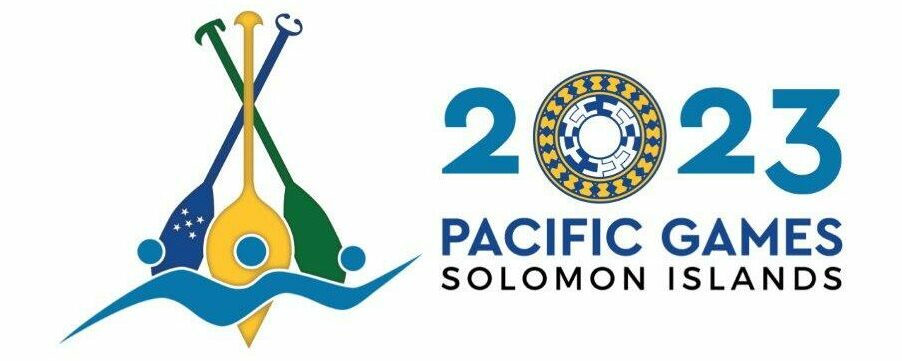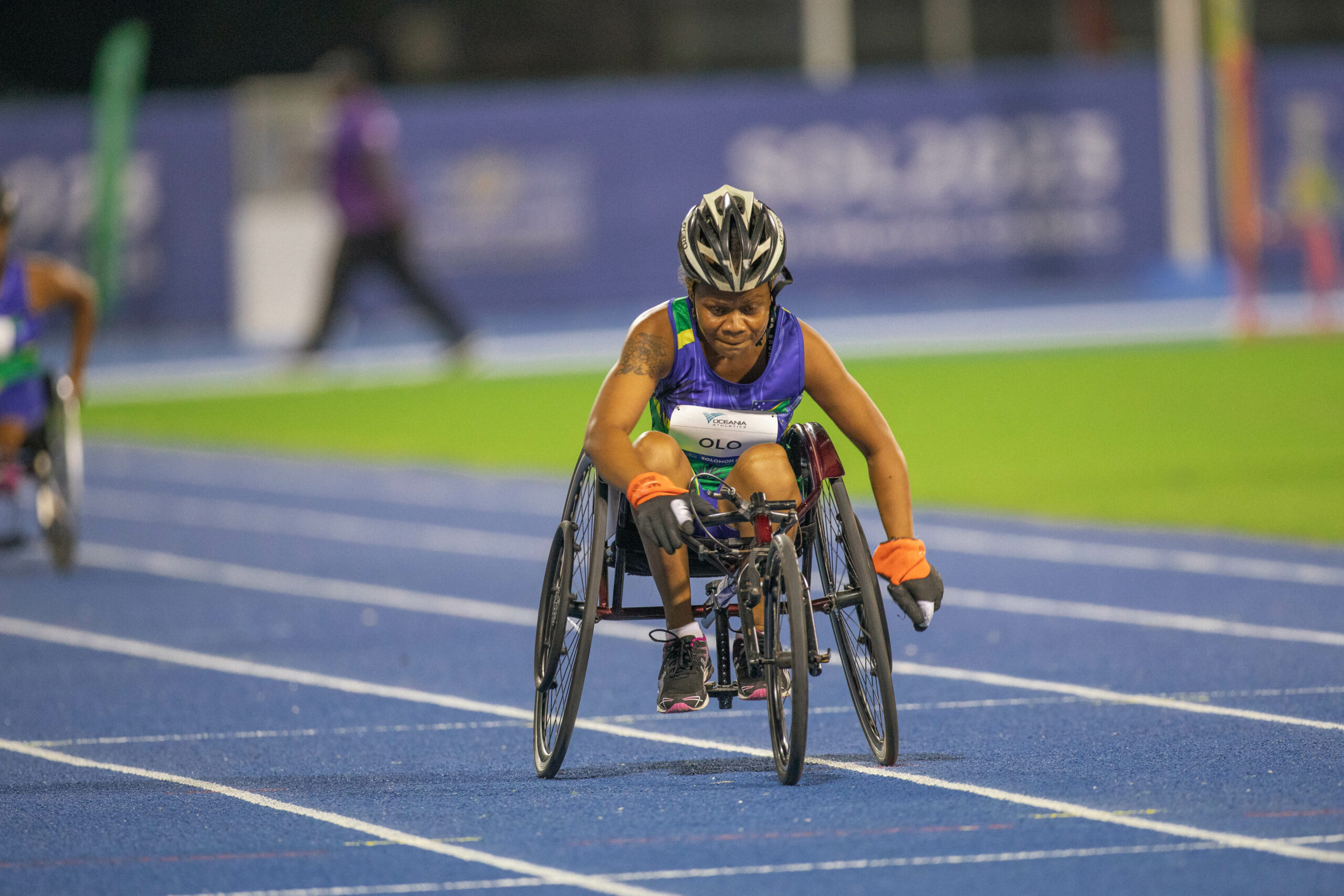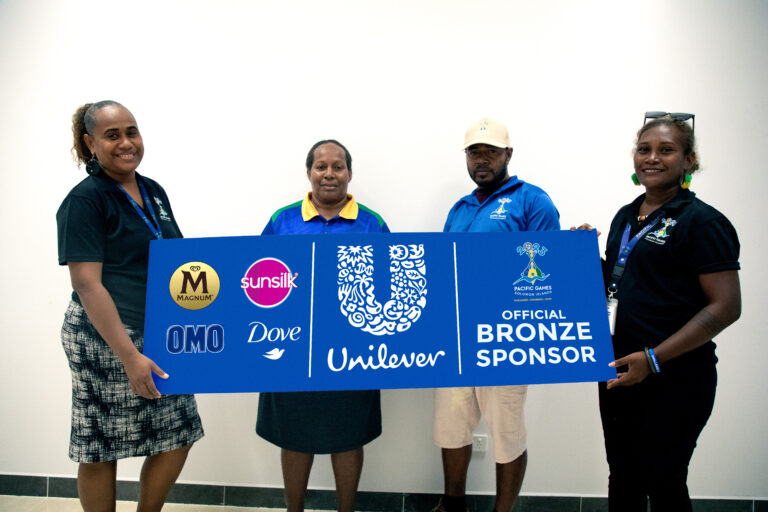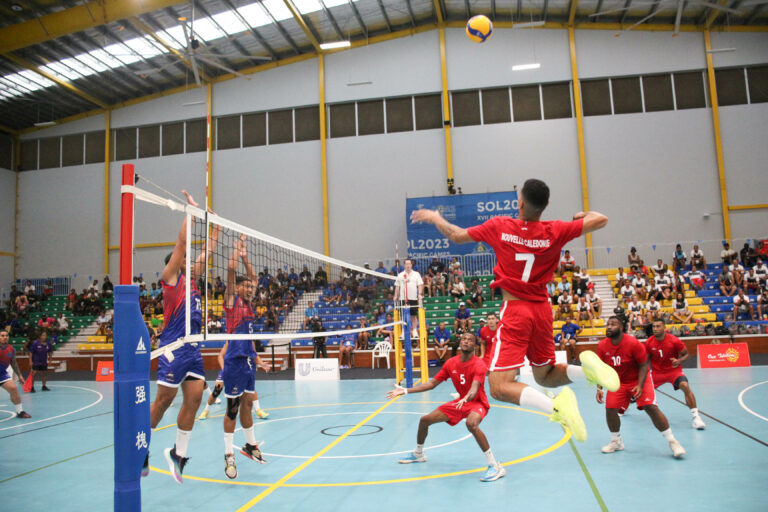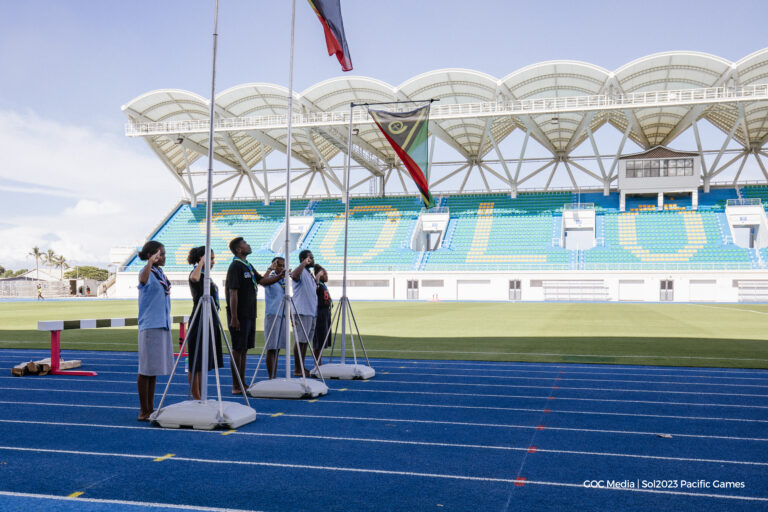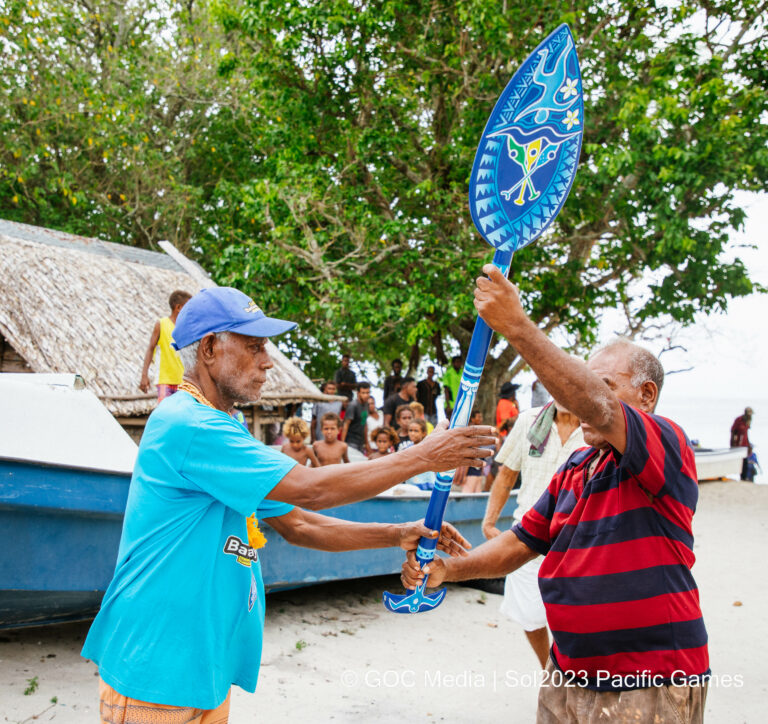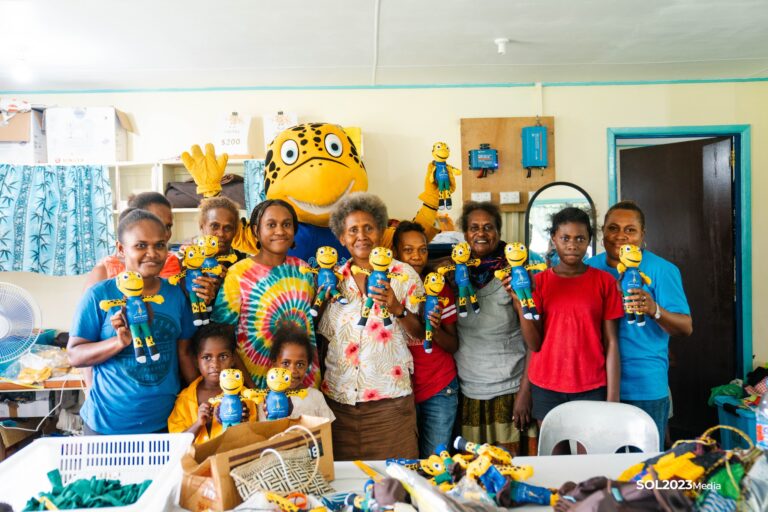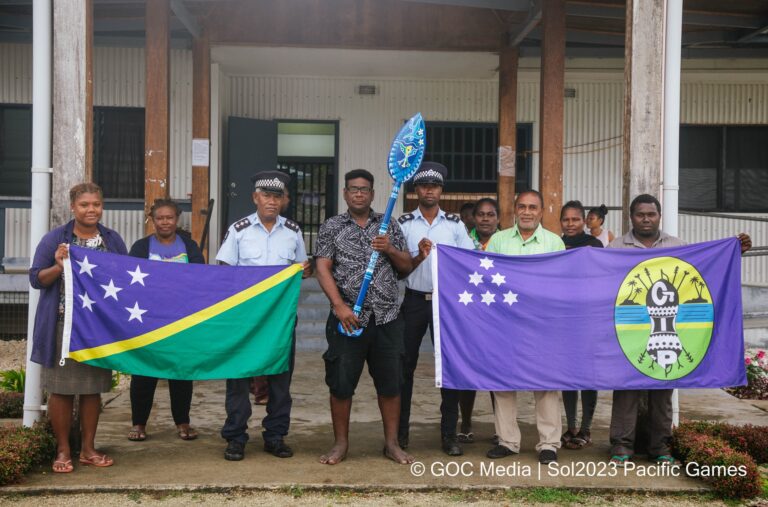History, tears and hope symbolise Sol2023 women’s 100m wheelchair run
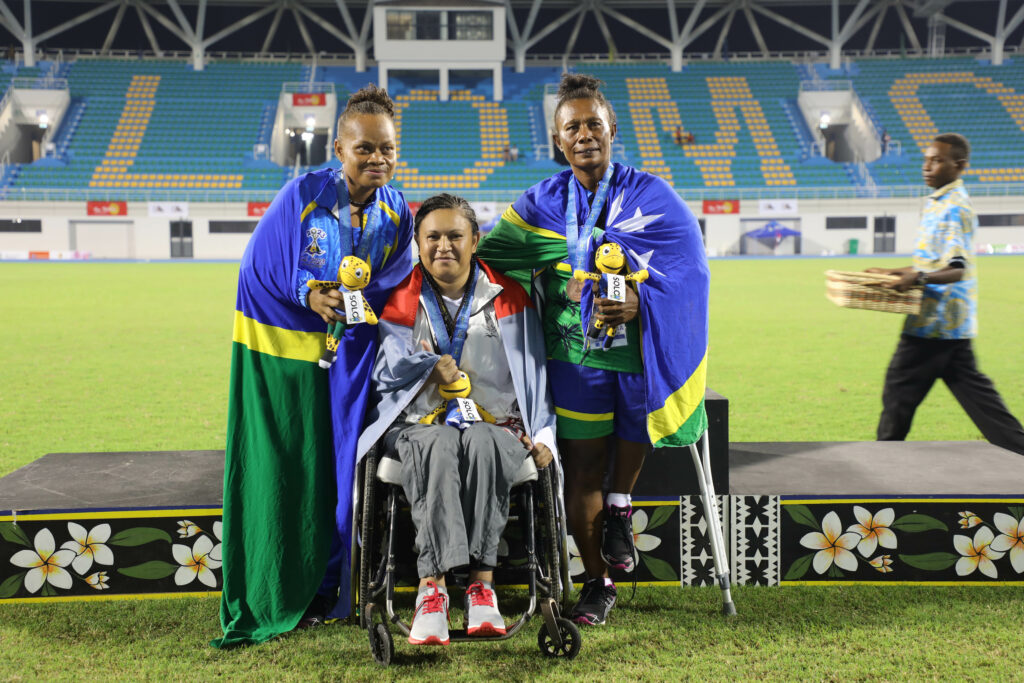
Three women took their mark on the starting line of Honiara’s National Stadium track, two of whom were Solomon Islanders, racing for the first time in front of their home crowd in the inaugural Pacific Games women’s 100m wheelchair run at Sol2023.
On this historic Tuesday night, Anna Pipisega of New Caledonia and Solomon Islanders Noela Olo and Rose Lidia were those three women. The starting gun went off and the sprint to the finish line began.
Pipisega with a classification of T53/F55 crossed the finish line first in 25.23 seconds and secured a final placing percentage of 64.16, making it onto the podium for gold.
Olo finished with a time of 32.48 seconds and a placing percentage of 47.25 against her T/F54 classification, claiming silver.
Lidia, who competed without a proper racing wheelchair, finished third with a time of 49.89 seconds and a final placing percentage of 30.76 against her T/F54 classification.
In the wheelchair category, Para athletes’ results are measured against their classification to determine their final placing percentage. A higher percentage closer to 100 indicates a better ranking and the highest ranked competitor at the end of the event is the winner.
“This means a lot to me because this is my first Games in Solomon Islands and I want to thank my family, my friends and everyone who supported me and my colleagues. I’d like to thank everyone in New Caledonia for their support and the messages they have sent to me,” gold medallist Pipisega told the Pacific Games News Service.
Pipisega, who only started racing in a wheelchair this year, revealed that the Paris 2024 Paralympic Games is her next goal, and she is going to work hard to qualify.
“I’ve been doing the chair for five or six months. I only started this year. We’re going to try to see what happens in the qualifiers. We’re going to work flat out and hopefully I’ll go to the Paralympics,” she said.
While one athlete was looking forward to attempting Paralympic qualification, another was wishing they had the proper equipment to train and compete with.
Lidia, who competed without a proper racing wheelchair, reflected on the race to the Pacific Games News Service.
“I had a good race, but it was difficult and very challenging. I wish I had a proper race wheelchair for training so I could race better.”
Silver medallist Olo, who had never competed in any kind of racing before taking part in the women’s 100m wheelchair run, told the Pacific Games News Service: “I feel a little bit excited because it’s my first time competing. It was also a last-minute decision for me to take part in this event. I never trained, they just put me into it, but I just tried my best.
“I finished my other Games events in table tennis, and I have shot put on Thursday (30 November) and for this race, they told me they wanted me to try it, so I tried it. It is nice and faster, but I need more training for it.”
The three athletes’ tearful embrace at the end of the event seemed to reflect both the happy significance of being part of an inaugural race, and the hope that next time, they would all be competing with equally suitable wheelchairs.
By Melissa Velvel Fare and Joyce Koiari, Pacific Games News Service
